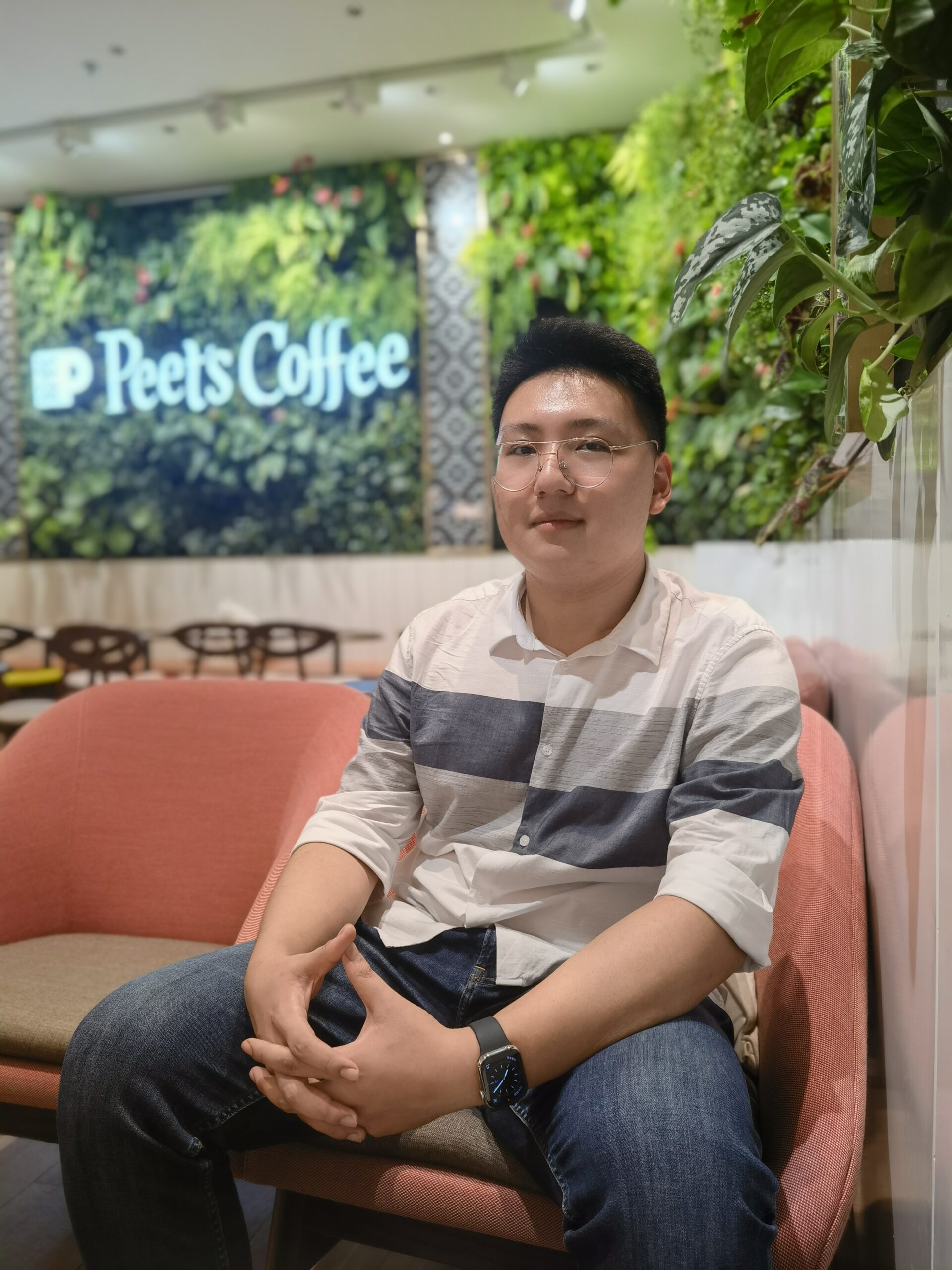By Tianlei (Ruby) Qiu, Class of 2024
As the student coordinator for the Governing China Cluster of CSCC, Zihan Chen, UG Class of 2026, took on a pivotal role in facilitating academic discourse and research on Chinese governance and policies. His involvement in research projects, such as “Regulating Global China: Mapping Chinese National Regulations on Corporate Overseas Behaviors,” showcases his dedication to unraveling complex socio-political dynamics. Driven by a passion for fostering dialogue and understanding, he also spearheaded the CSCC Discussion Group—a student-led forum providing a platform for robust discourse on contemporary Chinese society. Through this initiative, he has nurtured an environment where students can exchange perspectives, challenge assumptions, and deepen their understanding of pressing societal issues. Today, we are lucky to know more about his aspirations, academic journey, and further plans within and beyond his journey at CSCC.

Hi Zihan, thanks for talking to us. Can you tell us about your role as the student coordinator for the Governing China Cluster and some of the key responsibilities you undertook in this position?
Of course. As a student coordinator, my role was multifaceted and involved various responsibilities to foster academic discourse and research on Chinese governance and policies. When I first joined the cluster, my responsibilities were mainly to provide logistical support to facilitate the smooth flow of guest speaking series, including designing and publishing promotional materials, maintaining communication and records, and post-event summary and financial processing. With the deepening of my relationship with the cluster, I also participated in the preparation of our cluster’s material for the CSCC Annual Conference and the drafting of the Cluster Semeterly Report.
Your involvement in research projects, such as “Regulating Global China: Mapping Chinese National Regulations on Corporate Overseas Behaviors,” is quite impressive. Could you share some insights or findings from this project that you found particularly interesting? Would you mind sharing some challenges you have encountered during the process? How have you addressed them to ensure the accuracy and comprehensiveness of the database?
Absolutely. One particular insight I gained is that, in contrast to a general approach with no focus on data collection, our beginning long discussion and defining the scope of the research we needed to target and the relevant screening criteria greatly saved time and effort for later research. In fact, the results of the current stage also prove that the efficiency of filtering laws after the research question and methods is clear and much higher than the initial various attempts. In this process, we are constantly polishing and subdividing the research problem, perhaps this is another sense of “Problems are More Important than Solutions.”
You initiated the CSCC Discussion Group to provide a platform for discussing current events and social issues in contemporary Chinese society. We are very interested in knowing more about this initiative. Could you please tell us what inspired you to start this initiative and what the response from students has been? How do you believe participating in activities like the CSCC Discussion Group contributes to the academic and personal development of DKU students?
In the current context of ideological polarization and the suppression of free expression space, it is quite difficult to create a group that can discuss political views without burden. However, similar efforts in DKU have never stopped. As far as I know, there were similar online communities within our campus in 2022 or even earlier, so it could be viewed as an echo of previous efforts.
Building such a discussion group, on the one hand, is to fill the gap in the expression space of DKU students; on the other hand, it is also an attempt to implement academic freedom and ideological tolerance. By participating in similar activities, we hope to better grasp the editing of the current discourse power in contemporary China. Moreover, we can provide some ideas for the collision of social research in the future. Unlike other disciplinary projects, where there has to be a projected outcome over a period of time – for this project, the conversation itself was the projected outcome.
We’ve noticed that your interests span from political science and anthropology to international relations and affairs. As someone passionate about understanding China’s social dynamics and governance and its relationship with other countries, what future projects or initiatives do you hope to pursue in this field? Or do you have any other research interests you want to share with us?
I am currently exploring several kinds of research on political economy, including “the role change of contemporary Chinese urban development zones” and “the status and role of Party committees in Chinese non-state-owned enterprises.” These studies may not be directly related to my major, but they can expand the foundation of my economic discipline while laying a better knowledge reserve for my future signature work.
In addition, I am managing the administration of Lilypad, a student-led independent publication on campus. Our goal is to provide a window into the growth of DKU, the development of China, and the changes in the world by enhancing students’ voices. This is also consistent with the mission of CSCC and DKU’s liberal arts education philosophy. With the great support we have received from various school departments, including CSCC, we’re more than confident that Lilypad will add to the history of our university.


